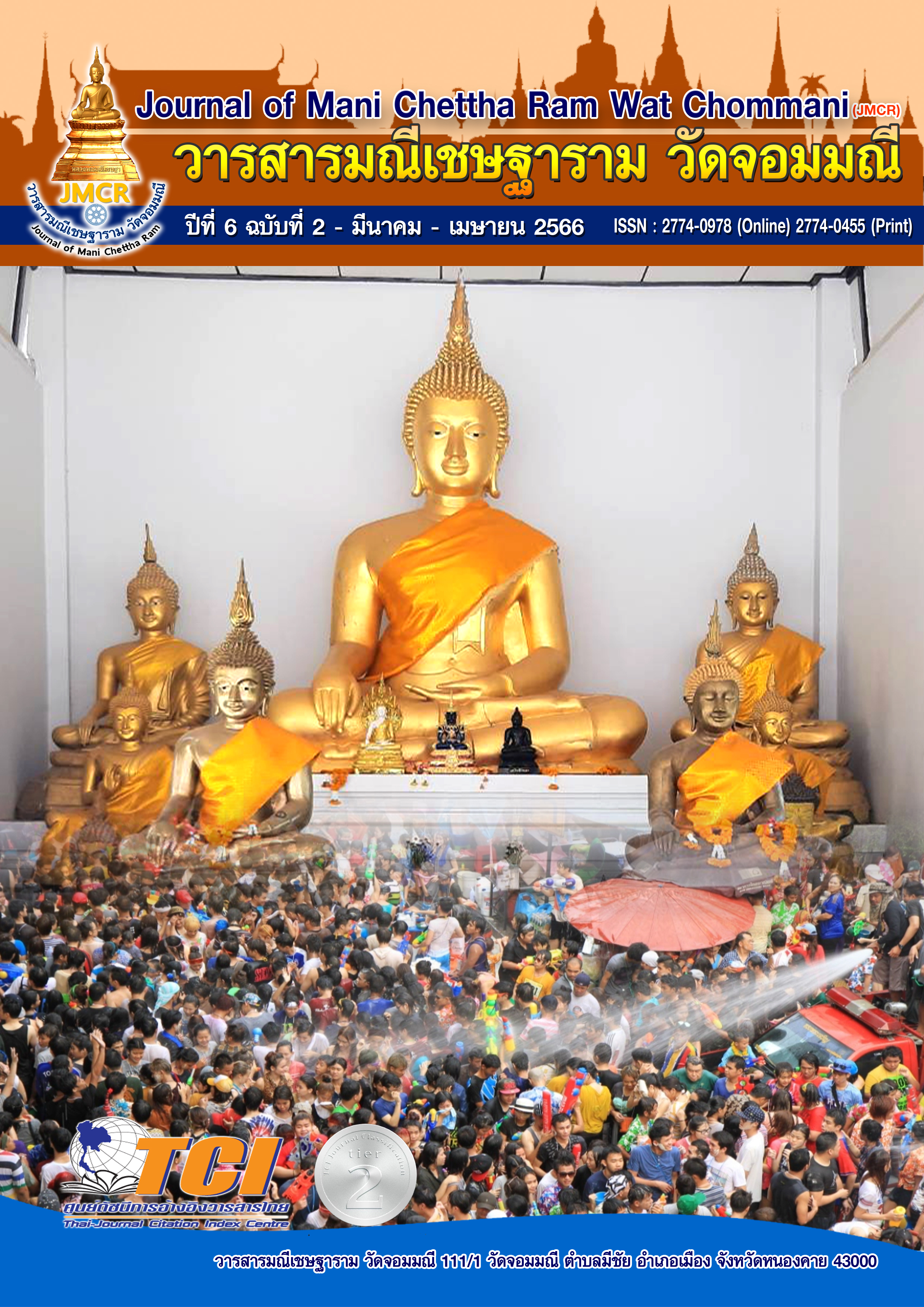EXPLORATION OF HUMAN RESOURCE MANAGEMENT AND LEADERSHIP KNOWLEDGE IN THE 21ST CENTURY THROUGH PODCASTING
Abstract
If the public sector faces new challenges, one thing that will enable the public sector to cope with those challenges is knowledge. Today's knowledge is being transferred rapidly according to changes in technology. Therefore, the benefits gained from that knowledge are fast and fresh and ready to be applied to solve various situations in time. One important source of knowledge is podcasts. The objectives of this research were 1) to study the status of knowledge on human resource management and leadership in the 21st century through podcasts and 2) to synthesize knowledge on human resource management and leadership in the 21st century. It is qualitative research. The data used to synthesize leadership knowledge consisted of 14 podcast programs through QDA Miner data analysis.
The results of the study showed that 1) The practice of human resource management is most necessary for self-improvement. Today's work in human resource management places great emphasis on skill development. The most relevant aspect of human resource management is human resource development. The thing that has changed the most in human resource management is generation. And the development of human resources at the macro level, namely the university being the source of the development of the country's personnel. 2) As for the 21st Century Knowledge of Leadership through podcasts, it was found that the issue most relevant to leadership style was the need to gain people's trust and trust. The most relevant aspect of leadership skills is communication. And the most relevant aspect of leadership building is learning.
References
กรรณิกา เรดมอนด์. (2559). ตัวบ่งชี้ทักษะภาวะผู้นำในศตวรรษที่ 21 สำหรับผู้บริหารสถานศึกษาขั้นพื้นฐาน. ใน หลักสูตรศึกษาศาสตรดุษฎีบัณฑิต สาขาวิชาการบริหารการศึกษา คณะศึกษาศาสตร์ มหาวิทยาลัยมหามงกุฏราชวิทยาลัย.
ณภัทร สงวนแก้ว. (2563). การพัฒนาทักษะที่มีอยู่ (Reskilling) และเสริมทักษะใหม่ (Upskilling). เรียกใช้เมื่อ 8 ธันวาคม 2564 จากhttps://th.hrnote.asia/hrinsight/exclusive-interview-with-gallup/.
นิสดารก์ เวชยานนท์. (2554). การบริหารทุนมนุษย์เชิงกลยุทธ์เพื่อเพิ่มมูลค่า. กรุงเทพมหานคร : สถาบันบัณฑิตพัฒนบริหารศาสตร์. โครงการเอกสารและตำราคณะรัฐประศาสนศาสตร์.
นิสดารก์ เวชยานนท์. (2562). การศึกษาระบบการบริหารคนเก่งภาครัฐที่มีความสัมพันธ์กับผลการปฏิบัติงานของคนเก่ง กรณีศึกษา: ข้าราชการในระบบข้าราชการผู้มีผลสัมฤทธิ์สูงของสำนักงาน ก.พ. ใน รายงานการวิจัย. คณะรัฐประศาสนศาสตร์ สถาบันบัณฑิตพัฒนบริหารศาสตร์.
แม๊กซ์เวลล์, จอห์น ซี. (2552). ความสำเร็จ สร้างได้ทุกวัน. แปลและเรียบเรียงโดย อิทธิพน เรืองศรี. กรุงเทพมหานคร : ดีเอ็มจี.
สำนักงานคณะกรรมการข้าราชการพลเรือน. (2560). ข้าราชการไทยกับการขับเคลื่อนสู่ประเทศไทย 4.0. เรียกใช้เมื่อ 8 มิถุนายน 2564 จาก https://www.ocsc.go.th/sites/default/files/attachment/page/civil_officer_th_4.0.pdf.
อานวัฒน์ บุตรจันทร์. (2552). ผลของการสอนเสริมด้วยพอดคาสต์โดยใช้กลวิธีในการกำกับตนเอง ในรายวิชาการผลิตสื่ออิเล็กทรอนิกส์ เพื่อการศึกษาที่มีต่อผลสัมฤทธิ์ทางการเรียนและการกำกับตนเอง ของนิสิตระดับปริญญาบัณฑิต. ใน วิทยานิพนธ์ครุศาสตรมหาบัณฑิต จุฬาลงกรณ์มหาวิทยาลัย.
Becker, Gary S. (1993). Human Capital: A Theoretical and Empirical Analysis with Special Reference to Education, 3rd ed., Chicago: University of Chicago Press.
Dirks, K. T., & Ferrin, D. L. (2002). Trust in leadership: Meta-analytic findings and implications for research and practice. Journal of Applied Psychology, 87(4) ,611- 628.
Geoghegan, Michael,W., Klass, Dan. (2007). Podcast Solutions: The Complete Guide to Audio and Video Podcasting. USA: Friendsof OR SEC ED. USA. APRESS.
Harrison, R. (2002). Learning and Development. London, CIPD.
Hughes, C. (2010). People as technology conceptual model: Towards a new value creation paradigm for strategic human resource development. Human Resource Development Review, 9(1), 48-71.
McAllister, D. J. (1995). Affect- and cognition based-trust as foundations for interpersonal cooperation in organizations. Academy of Management Journal, 38(1), 24-59.
McWhorter, R. R., & Delello, J. A. (2015). Green computing through virtual learning environments. In F. Nafukho (Ed.), Integrating technology into higher education and in the workplace (pp. 1-28). Hershey, PA: IGI Global.
Mishra, A. K. (1996). Organizational responses to crisis: Centrality of trust. Sage.
Brack, J. & Kelly, K. (2012). Maximizing millennials in the workplace. UNC executive development. Retrieved from https://www.kenan-flagler.unc.edu/executive-development/custom-programs/~/media/files/documents/executive-development/maximizing-millennials-in-the-workplace.pdf.
Contino, Diana S. (2004). Leadership Competencies: Knowledge, Skills, and
Aptitudes Nurses Need to Lead Organizations Effectively. Critical Care Nurse, 24 (3): 52-64.
Geoghegan, Michael,W., Klass, Dan. (2007). Podcast Solutions: The Complete
Guide to Audio and Video Podcasting. USA: Friendsof OR SEC ED. USA. APRESS.
Hartford Business. (2014). summer. Millennials to take over by 2025. [online URL;
https://www.hartfordbusiness.com/article/millennials-to-take-over-by-
accessed on August 18,2020.
Scutter, S., Stupans, I., Sawyer, T., & King, S. (2010). How do students use podcasts to support learning? Australasian Journal of Educational Technology, 26(2). https://doi.org/10.14742/ajet.1089.
Storey, John; Ulrich, Dave and Wright, Patrick M. (2019). Strategic Human Resource Management: A Research Overview. State of the Art in Business Research. London: Routledge.
Tripathi, A. and Dhir, S. (2022). HRD interventions, learning agility and organizational innovation: a PLS-SEM modelling approach, International Journal of Organizational Analysis, Vol. ahead-of-print No. ahead-of-print.
Vieira da Cunha, Joao & Antunes, Anabela. (2022). Leading the self‐development cycle in volunteer organizations. European Management Review. 10.1111/emre.12501.
World Economic Forum (WEF). (2020). The Future of Jobs Report 2020 and Global Competitiveness Report 2020 (CGI).
Zimmerling, A. and Chen, X. (2021). Innovation and possible long-term impact driven by COVID-19: manufacturing, personal protective equipment and digital technologies, Technology in Society, 65, 101-541.




